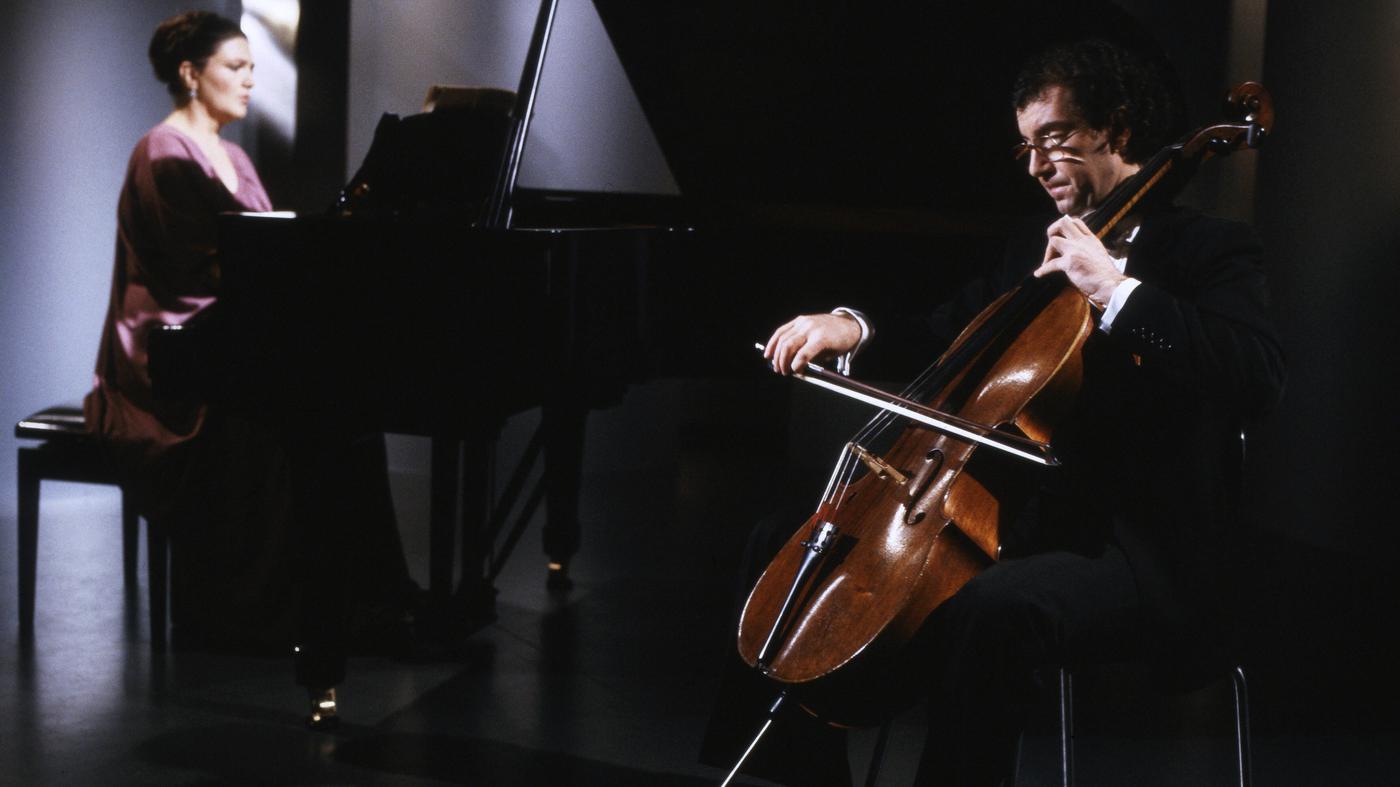The memories are strong and present, even now, 20 years after the death of Boris Pergamenschikow on April 30, 2004. A cellist, a violinist and a chamber music enthusiast sit at a kitchen table in Prenzlauer Berg and rave: about a person who always curious and attentive to his contemporaries, who was humorous, noble and educated, a brilliant musician as well as a gifted teacher.
In 1977, Pergamenschikow decided to emigrate from Russia, first found a new home in Cologne and in 1998 he was appointed professor at the “Hanns Eisler” University in Berlin, where he literally taught until his last breath, ending up in the hospital from a wheelchair out of. He is buried in the Dahlem forest cemetery.
A brilliant musician and gifted teacher
Claudio Bohorquez, the cellist in the kitchen table group, had admired Pergamenschikow since his childhood, first dared to play for him at the age of 14 and was accepted into his class three years later. Today he is a professor at the Eisler University. “His lessons consisted of questions rather than instructions,” he says. “Boris taught each student differently and adjusted to them sensitively in order to be able to further develop their personalities. That was his art.”
Christian Tetzlaff, sitting opposite Claudio Bohorquez, agrees. He met Pergamenschikow through the pianist Lars Vogt, and they performed a lot together as a trio. “It was always very touching with him because everything was important to him,” remembers the violinist. “And because he always perceived other people as such. Which wasn’t a given for someone from this generation. 95 percent of the teachers were used to saying: That’s how it is, I know better.”
Pergamenschikov became a real father figure for Tetzlaff; the cellist was born in 1948, the violinist was born in 1966. “I don’t know anyone who has put themselves at the service of composers like him,” adds Claudio Bohorquez. And then talks about the thing with the coin: “As a student, if you found a fingering for a piece, usually unconsciously, it could happen that he said: I don’t know that one yet, I have to try it out immediately! Then he took a coin out of his pocket and asked: May I purchase a license for this fingering?”
Andrea von Bernstorff, the third in the group, remembers Boris Pergamenschikow as a wide-awake, cheerful contemporary – “no one could tell jokes as wonderfully as him!” – but also as an intellectual among musicians. “My favorite saying of his was: If you don’t read Dostoyevsky, you don’t even need to start playing the cello.” Because without a broad horizon, without interest in the context in which a score was created, in the paintings and literature of the time it was written, it seemed to him a convincing musical interpretation impossible.
Keep the memory alive
As chairwoman of the Friends of the Eisler University, Andrea von Bernstorff was the initiator of the Boris Pergamenschikow Prize for contemporary chamber music in 2005. “Because it was important to him not only to play the works but also to exchange ideas about their content, it is important for the participants to explain why they are performing the pieces in this way and what fascinates them about the music.”
It was she who initiated the memorial concert on the occasion of the 20th anniversary of his death. Former students of Pergamenshikov who have had great careers, such as Nicolas Altstaedt, Julian Steckel and Claudio Bohorquez, will gather on April 30th, as will artistic companions. In addition to Christian Tetzlaff, there is the clarinetist Sharon Kam and the pianist Kiveli Dörken.
On April 30th, compositions by Beethoven, Saint-Saens, Debussy and Bartok, but also by Pergamenschikow’s friends Mauricio Kagel and Krzysztof Penderecki will be heard in the Small Hall of the Konzerthaus am Gendarmenmarkt. The evening opens with an ensemble piece, Penderecki’s “Ciacona” for six cellos, and a dozen of these string instruments can be heard at the finale. Nicolas Altstaedt and Claudio Bohorquez also take their students on stage for Julius Klengel’s “Hymnus”.
“I actually think about him every day, consciously or unconsciously,” says Bohorquez. “When I pick up the cello and I don’t succeed at something and I get impatient, I see him smiling in my mind’s eye. And then you have to smile yourself.”
